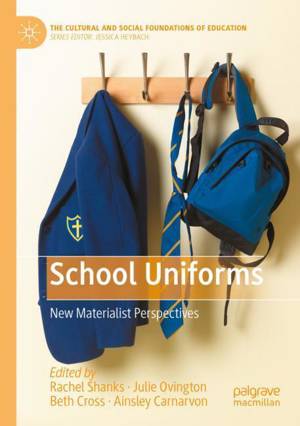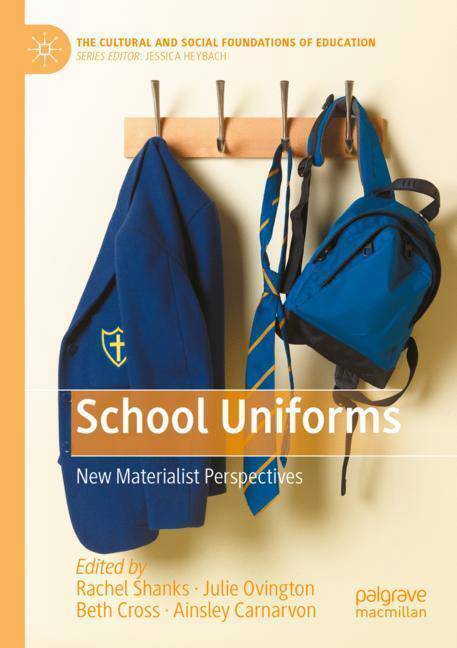
- Retrait gratuit dans votre magasin Club
- 7.000.000 titres dans notre catalogue
- Payer en toute sécurité
- Toujours un magasin près de chez vous
- Retrait gratuit dans votre magasin Club
- 7.000.0000 titres dans notre catalogue
- Payer en toute sécurité
- Toujours un magasin près de chez vous
School Uniforms
New Materialist Perspectives
Description
This edited volume brings together a new materialist approach to understanding the various legacies and controls being exercised through school uniforms. Through examining school uniform policies, the editors and their authors highlight the embodied choices that contribute to a socio-materialist understanding of democracy and social justice. Uniform policy plays a distinct role in setting the culture of compulsory school education and as such it constitutes a set of under-theorised school practices. This work thus brings together critical perspectives from education, sociology, cultural and postcolonial studies within an overarching analysis of how uniform imposes performances that have a formative effect on young people's identities and economic positionality.
Spécifications
Parties prenantes
- Editeur:
Contenu
- Nombre de pages :
- 167
- Langue:
- Anglais
- Collection :
Caractéristiques
- EAN:
- 9783031329418
- Date de parution :
- 06-08-24
- Format:
- Livre broché
- Format numérique:
- Trade paperback (VS)
- Dimensions :
- 148 mm x 210 mm
- Poids :
- 247 g

Les avis
Nous publions uniquement les avis qui respectent les conditions requises. Consultez nos conditions pour les avis.





